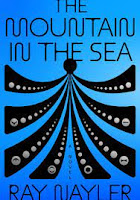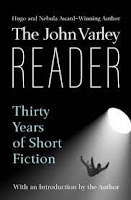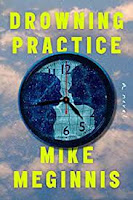There are three popular cooperative living card games on the market today: Lord of the Rings: The Card Game, Arkham Horror: The Card Game, and Marvel Champions: The Card Game. With Lord of the Rings in the middle of reprintings, Arkham Horror reprinting and releasing new content, and Marvel Champions fresh on the market, I thought it would be good to give would-be buyers information which can help pinpoint the game, or games, that might be for them. (Going forward the games will be referred to as: LotR, Arkham, and Marvel.)Before getting into the games' differences, it's worth establishing the things they have in common. All are cooperative experiences designed for 1-4 players. All have a similar business model: a core set of content, followed by the periodic release of new content, in large and small sizes, which expands upon the core set in iterative fashion. None of the games have a game board, only cards and tokens. The primary strategic element of each is building decks to tackle the challenges the game throws players' way. And lastly, all are based on fictional worlds that are ingrained in Western culture. (I will not be going into the differences of the worlds and lore in which the games live.) Everything else depends on the game.
Unique to Marvel Champions-Playable out of the box for 1-4 players (Arkham and LotR require purchase of additional core sets for complete gameplay experiences of 3 or 4 players. Edit: since the writing of this article, the re-release of LotR is now playable for 4 out of the box.)
-The most unique heroes (Each Marvel hero has cards that can only be used by that hero, and each has an alter-ego. Arkham and LotR's heroes are unique, but are dependent on the wider pool of cards available in the game that are not unique to the character, and have no alter-ego.)
-Focus on boss battles (Bad guys of varying sizes come and go in LotR and Arkham, but in Marvel, the villain is front and center, beginning to end, and its defeat is each game's goal.)
-No resource tokens (Cards play a dual role: as resources used to activate other cards, as well as cards that can be activated. LotR and Arkham both have separate resource tokens used as money. This likewise means that players will see all of the cards in their deck in a single sitting at least once, unlike Arkham and LotR where it is not typical.)
-Most consumer friendly business model (while LotR and Arkham are currently taking steps to consolidate their original models, Marvel remains the easiest to jump into in the way the game is packaged per hero, villain, and campaign)
Unique to LotR-Team-based gameplay (Unlike Arkham and Marvel, in LotR players do not control a single hero, rather three heroes per player, creating a stronger team feel)
-Success most tightly linked to deckbuilding (Winning a scenario in LotR is most directly related to deck building and deck tweaking. Arkham and Marvel are less based on deck quality and more dependent on tactical, in-the-moment decisions)
-The most like a puzzle (While all three games introduce scenarios the player must figure out how to defeat, in LotR solving this “puzzle” is the heart of gameplay and is more dependent on the cards the players have in their decks. Another way of putting this is, a lot of the game is decided before the beginning of the first turn.)
Unique to Arkham-Narrative-based experience (Marvel and LotR focus on individual scenarios. Arkham offers scenarios linked to form an overarching campaign.)
-Upgradable heroes (In Arkham, players upgrade their heroes in rpg fashion over the course of a campaign. LotR and Marvel do not.)
-Mapped settings with linked locations (LotR and Marvel offer vague, abstract environments. In Arkham players build a map of locations at the start of gameplay, and physical movement between locations plays a critical role in the resolution of scenarios. In essence, the cards form a “game board” that significantly reduces the abstract nature of setting.)
-Doom clock (Arkham's clock ticks inevitably toward defeat with each round, whereas the clocks of Marvel and LotR move backward and forward in time, depending on player action or lack thereof.)
-Greatest non-determinism (Damage and success in LotR and Marvel are the result of a direct comparison of stats plus potential shadow/boost effects. In Arkham players must not only compare stats but also take into consideration a greater degree of potential effects from the chaos bag, including the automatic failure of skill tests.)
Common to Arkham and Marvel:
-Hero cards with personalized, negative effects that appear at surprise times (Arkham: weaknesses, and Marvel: obligations)
-Allies which supplement heroes (Gameplay is hero-centric, but features helpful allies coming and going from gameplay to aid the hero)
Common to LotR and Marvel:
-Single game scenarios (where Arkham offers a narrative experience over multiple games/scenarios, LotR and Marvel do not link gameplay between games/scenarios)
-Player actions directly affect the game clock from running out (Arkham's clock ticks steadily toward zero with each round, whereas players in LotR and Marvel can influence the speed with which the clock ticks downward, even turning it back or resetting it)
-Threat level (rising amounts of threat that, when hitting certain threshholds, spell defeat for the heroes)
Common to LotR and Arkham:
-Resource tokens (Unlike Marvel whose cards double as resources, LotR and Arkham both have separate tokens as their game's currency for playing cards or events.)
-Resource Management (While resource management is a part of Marvel, it's more fast, furious, and immediate. In Arkham and LotR players must be tactful, often planning one or two phases ahead, and paying the consequences now for an advantage later.)
-Not much else (Beyond the baseline commonalities described earlier, these two games are the most distinct of the three.
Which One to Buy?
There are many ways to skin this cat, so let's take a look at a few:
1. World/Lore
If you like Marvel movies and superheroes, buy Marvel. If you like Middle Earth, buy LotR. If you like cosmic horror, buy Arkham. Another way of saying this is, all games are of high quality design. They are more similar in quality than different, meaning the world/lore/IP can be a decision point. But there are others:
2. Access to content
As of the writing of this post, all the games and expansion content are on the market and available. Given the dynamic nature of the LCG model, however, this could change in a year or two, depending on how often reprints are done. Thus it's recommended to try a core set of the game you are most interested in, and if it grabs you, try to snap up as much of the expansion content that interests you ASAP. Your son or daughter will be sad if they cannot get Hulk or Black Widow three years from now, just as LotR fans will likely want to play the saga stories, etc. There is no guarantee these will walways be in print, such is the nature of LCGs.
Another note regarding content is how it is packaged. Marvel is by far the most consumer friendly, but LotR and Arkham are making strides to catch up. To be specific, Marvel players are able to purchase ready-to-play decks for heroes and villains, as well as combinations of both in deluxe campaign expansions. They can buy what they like and not buy what they don't like. Cards in Arkham and LotR are more mixed in source. Expansion packs, large and small, generally contain a variety of cards, liked and unliked, meaning content is more spread across the spectrum of the game. In reprinting earlier content, FFG are revising how Arkham and LotR are packaged. What once required the purchase of seven different packages per campaign in Arkham has been boiled down to two, and in doing so separated heroes from villains and scenarios. Players can buy what they want and ignore what they don't. LotR still mixes content together, but individual campaigns/cycles can be purchased in single, larger packages rather than multiple smaller. If things continue as they do, all content for Arkham and LotR should be available in the new business model in 2-3 years time.
3. Age Appropriateness/Difficulty
Marvel is the easiest of the three games, and therefore the most accessible to younger players. The theme is also wholly comic book. It is not adult for violence or other means. As long as the child understands the rules, they can play. To be clear, however, Marvel is not easy; players will lose as often as they win. Arkham and LotR are more difficult, but in different ways. Despite comparing apples to oranges, I would say Arkham is easier. A less-than-optimal deck can be overcome with good decisions and lucky draws from the chaos bag. LotR will likely see players suffering the most defeat til their deckbuilding overcomes the puzzle of the scenario. It is the most difficult of the three.
Looking at theme, Arkham is the most “adult”. Every family will vary, but Arkham card art does contain horror and the macabre. The art of LotR, on the other hand, is perfectly suitable to young and old. The spirit of Tolkien channeled, the game has a mythic Middle Earth feel due to the images on cards.
4. Fun Factor
This depends on the person and what they consider fun and enjoyable beyond the theme/lore and cooperative play. For Marvel, smiles are to be had effectively comboing cards, seeing their favorite hero come to life in game mechanisms, and squeaking through tight situations. For Arkham, enjoyment is driven by the journey through stories, the agency players have in making story-consequential decisions, and upgrading characters to more and more powerful states. And for LotR, the biggest bits of fun are to be had marshaling your army with a friend, working within really tight situations, and the satisfaction seeing a well-built deck finally “solve the puzzle”—“I knew that card would come in handy!”
5. Luck/Determinism
All three games are dynamic and can occasionally swing violently in one direction or another. But Arkham is the most complex and dynamic in terms of luck/determinism. It's randomness is an element until itself (the chaos bag), rather than a means. In Marvel and LotR luck exists, but less so. Certainly there are games where everything goes wrong and players are defeated in short order. But it's semi-predetermined by card shuffle. The deeper players get into the villain's deck, the more they can estimate what can and cannot happen. Arkham's chaos bag is just aptly named...
Conclusion
In the end, all three games offer different experiences, from world and lore to mechanisms and luck. That being said, Marvel and LotR, with their scenario-based gameplay, bear more in common than to Arkham and its narrative-driven experience. Therefore, the first decision point is: do you expect narrative/story in your game? If yes, Arkham is the obvious choice. Want something a little easier and child friendly? Try Marvel. In fact, I would argue Marvel is something like LotR 2.0—the more accessible version. Applying lessons learned, Marvel offers a streamlined, simpler version of LotR, as well as superhero-centric gameplay. LotR is the most difficult, meaning it is for players who like a real challenge, as well as a more team-based "commander" experience.
Hope that helps.






































